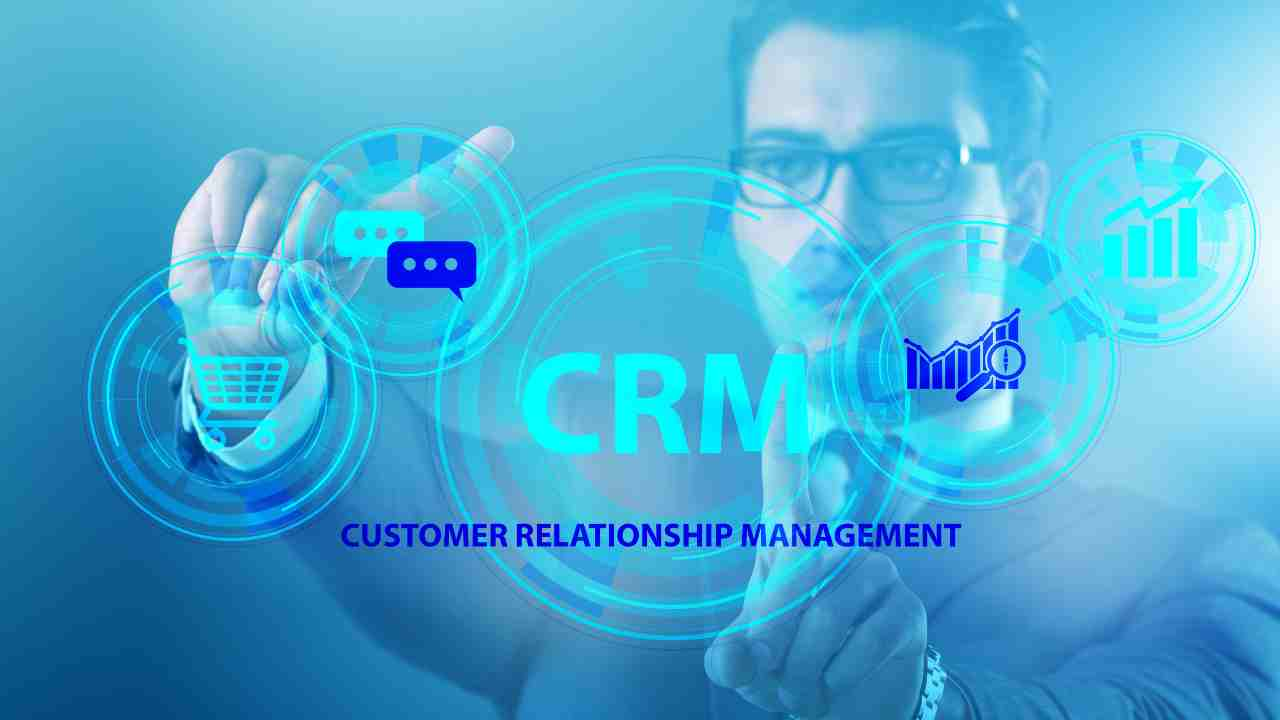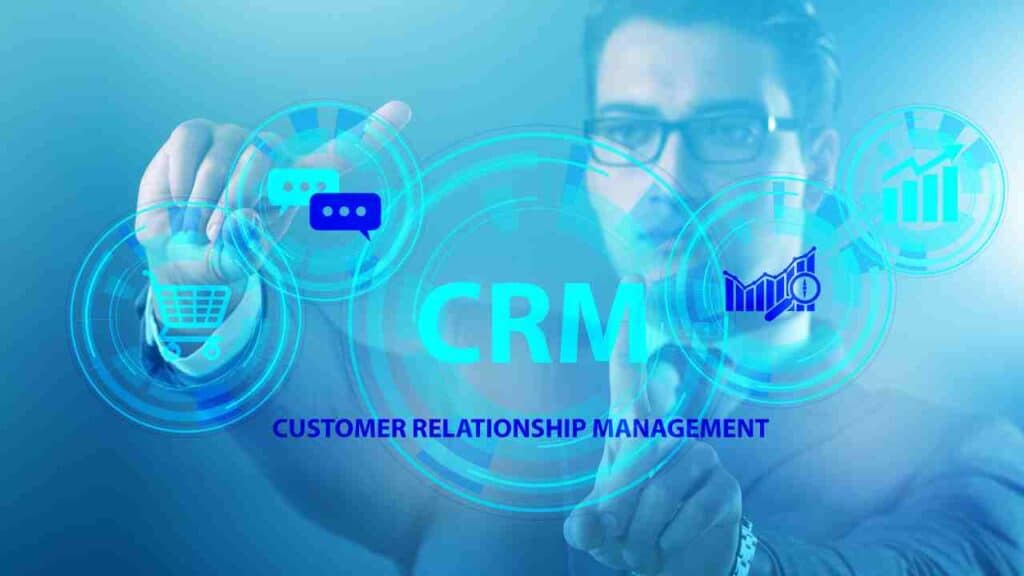Capturing Essential Business Data Using CRM

In today’s digital age, businesses are constantly generating vast amounts of data. From customer information to sales figures, this data holds valuable insights that can help businesses make informed decisions and drive growth. However, without an effective system in place to capture and organize this data, it can quickly become overwhelming and difficult to leverage.
This is where Customer Relationship Management (CRM) software comes into play. CRM systems are designed to help businesses capture, store, and manage essential data about their customers, leads, and sales. In this article, we will explore the importance of capturing essential business data using CRM and how it can benefit small businesses, agency owners, and marketers.
The Importance of Capturing Essential Business Data
1. Improved Customer Understanding: By capturing essential business data, such as customer demographics, purchase history, and preferences, businesses can gain a deeper understanding of their customers. This knowledge allows businesses to tailor their marketing efforts, personalize customer experiences, and build stronger relationships.
2. Enhanced Sales and Marketing Strategies: Data captured through CRM systems can provide valuable insights into sales trends, customer behavior, and marketing campaign effectiveness. This information enables businesses to refine their strategies, identify areas for improvement, and optimize their efforts to drive better results.
3. Streamlined Operations: With a centralized CRM system, businesses can streamline their operations by eliminating manual data entry, reducing duplicate records, and automating repetitive tasks. This not only saves time and resources but also improves data accuracy and consistency.
4. Better Decision-Making: Capturing essential business data allows businesses to make data-driven decisions. By analyzing the data stored in their CRM system, businesses can identify patterns, trends, and opportunities that may have otherwise gone unnoticed. This empowers businesses to make informed decisions that are backed by data and increase their chances of success.
The Role of CRM in Capturing Essential Business Data
CRM software plays a crucial role in capturing and organizing essential business data. Here are some key features and functionalities of CRM systems that facilitate this process:
1. Contact Management:
A CRM system allows businesses to store and manage contact information for their customers, leads, and prospects. This includes details such as names, email addresses, phone numbers, and social media profiles. By capturing this data, businesses can easily access and update customer information, ensuring that it remains accurate and up to date.
2. Lead Tracking:
CRM systems enable businesses to track and manage leads throughout the sales process. By capturing essential data about leads, such as their source, status, and interactions with the business, CRM systems provide a comprehensive view of the sales pipeline. This allows businesses to prioritize leads, identify bottlenecks, and take appropriate actions to move leads through the sales funnel.
3. Sales and Opportunity Management:
CRM systems provide businesses with a centralized platform to manage their sales activities and opportunities. By capturing data related to sales deals, such as deal value, stage, and probability of closure, CRM systems enable businesses to track their sales performance, forecast revenue, and identify areas for improvement.
4. Customer Interaction Tracking:
CRM systems allow businesses to track and record customer interactions across various channels, such as phone calls, emails, and social media. By capturing this data, businesses can gain insights into customer preferences, communication history, and sentiment. This information can then be used to personalize customer interactions, provide better customer service, and build stronger relationships.
5. Reporting and Analytics:
CRM systems offer robust reporting and analytics capabilities, allowing businesses to generate insights from their data. By capturing essential business data and leveraging reporting tools, businesses can create customized reports, dashboards, and visualizations to monitor key performance indicators, track progress towards goals, and identify areas for improvement.
Case Study: XYZ Company
XYZ Company, a small e-commerce business, implemented a CRM system to capture essential business data and improve their operations. By using the CRM system, they were able to:
- Centralize customer information, including purchase history and preferences, to provide personalized recommendations and offers.
- Track leads and their interactions with the business, allowing them to prioritize follow-ups and improve lead conversion rates.
- Manage sales opportunities more effectively, resulting in increased deal closure rates and revenue.
- Monitor customer interactions and sentiment, enabling them to provide timely and relevant customer support.
- Generate reports and analytics to identify sales trends, optimize marketing campaigns, and make data-driven decisions.
Overall, the implementation of a CRM system helped XYZ Company streamline their operations, improve customer satisfaction, and drive business growth.
Get Your FREE 14-Day Trial and Take Your Business To The Next Level with an All-In-One Sales and Marketing Platform for businesses, agencies and marketers.
Capturing essential business data using CRM is crucial for businesses of all sizes. By leveraging CRM systems, businesses can gain a deeper understanding of their customers, enhance their sales and marketing strategies, streamline their operations, and make better-informed decisions. With the right CRM system in place, businesses can unlock the full potential of their data and drive sustainable growth.
Visit https://SaasExpert.ca – Your All-In-One Sales and Marketing Platform for small businesses, agency owners, and marketers to learn more about how CRM can help your business succeed.
Learn more about “CRM Software implementation techniques” right here.
Frequently asked questions about Capturing Essential Business Data Using CRM.

How can a CRM system help in capturing critical business data effectively? 🤔
CRM systems are a powerhouse for capturing, organizing, and analyzing business data. Understanding their capabilities can redefine your approach to customer relationship management.
Capturing Capabilities of CRM:
Centralized Storage: CRM systems offer a unified platform where all customer interactions, whether from emails, calls, or social media, get logged automatically. This eliminates data silos and ensures comprehensive data capture. 🌐
Automated Data Entry: Modern CRMs come with features like web form integration, which captures data from website visitors directly. No more manual entries, less room for errors! 🔄
Integration Power: CRMs can integrate with various other systems – ERPs, accounting software, marketing platforms, thereby pulling diverse data into one place. 🔗
Custom Fields: Tailor your CRM’s data fields to match your unique business needs, ensuring that you capture every bit of data that matters. 🔧
Activity Tracking: Track every interaction, from sales calls to support tickets. This provides a holistic view of the customer journey. 🛤️
Harnessing a CRM to its full potential means you’ll never miss out on vital information. Each data point adds clarity to the customer picture, driving smarter business decisions. 🎯
What types of business data should be prioritized for capture in a CRM system? 🎯
With the vast amounts of data available, it’s essential to prioritize what gets captured to ensure relevancy and manage storage.
Key Data Types:
Contact Information: This is foundational – names, phone numbers, email addresses, and physical addresses. It’s your direct line to your customers. 📞
Interaction History: Every email, call, or meeting provides insights. Knowing a customer’s history aids in personalizing future interactions. 🔄
Purchase History: What are your customers buying? When? How often? This data is gold for sales and marketing teams. 🛍️
Feedback and Preferences: Customer feedback, whether positive or negative, and their preferences help in tailoring offerings and improving services. 🎤
Support Tickets: Tracking issues or complaints and their resolutions can highlight areas for improvement and enhance customer satisfaction. ❗
Prioritizing data is about understanding what drives value for your business and what helps in offering a superior customer experience. It’s a continuous refinement process, aligned with evolving business goals. 🚀
How do I ensure data accuracy and consistency when capturing information in a CRM? ✔️
Data accuracy is critical; erroneous data can misguide strategies and mar customer experiences.
Ensuring Accuracy and Consistency:
Automated Data Capture: Reduce manual entries. With integrations and automated capture methods, data directly fed into the CRM is often more accurate. 🔄
Data Validation Tools: Many CRMs offer tools or plugins that validate data entries – be it checking email formats or ensuring no duplicate entries. ✅
Regular Data Audits: Periodically review the data. Cleaning redundant or outdated data ensures system reliability and relevance. 🧹
Training: Ensure your team understands the importance of data quality and how to use the CRM correctly. Knowledge reduces mistakes. 🧑🏫
Feedback Loops: Set up systems where errors, once identified, are corrected and the findings looped back to refine data entry processes. 🔁
Keeping data clean and consistent is like maintaining the health of your CRM. Regular check-ups and informed practices ensure its longevity and effectiveness. 🌟
Can CRM assist in real-time data capture, and how does it benefit my business? ⏱️
Absolutely! Modern CRM systems are built for the dynamic business landscape, and real-time data capture is one of their strengths.
Real-time Benefits:
Instant Insights: Real-time data means you can react immediately. Whether it’s a sales inquiry or a support ticket, timely responses enhance customer satisfaction. 🚀
Accurate Forecasting: With up-to-the-minute data, sales forecasting becomes more accurate, aiding in better resource allocation and strategy planning. 🔮
Enhanced Collaboration: Teams across the business can collaborate better when they have access to the latest data. No lags, no miscommunication. 🤝
Strategic Advantages: In competitive markets, having real-time data can give businesses the edge in identifying opportunities or averting issues. 🌟
Improved Efficiency: Automated workflows triggered by real-time data can streamline operations, from marketing campaigns to after-sales services. 📈
In the age of instant gratification, real-time data capture ensures businesses remain agile, proactive, and in-tune with customer needs. ⚡
How can CRM analytics help in making sense of the captured business data? 📊
Capturing data is just the first step. Analyzing this data unveils insights, patterns, and opportunities – and that’s where CRM analytics shine.
Analytical Power of CRM:
Segmentation: Analyze data to segment your customers based on various criteria – purchase history, interactions, preferences. This aids in targeted marketing and personalized services. 🔍
Trend Identification: Spot sales trends, seasonality effects, or emerging customer needs, helping in strategy formulation. 📈
Performance Metrics: Monitor sales performance, campaign effectiveness, or support efficiency, driving continuous improvement. 🎯
Predictive Analytics: Some advanced CRMs offer predictive analytics, forecasting future sales or potential churn, allowing businesses to be proactive. 🔮
Visual Dashboards: Convert raw data into visual graphs, charts, and dashboards. Visual representations make complex data digestible and actionable. 📊
CRM analytics transforms raw data into actionable insights. It’s like having a magnifying glass that reveals the finer details, nuances, and patterns within your business data. 💡🔍







